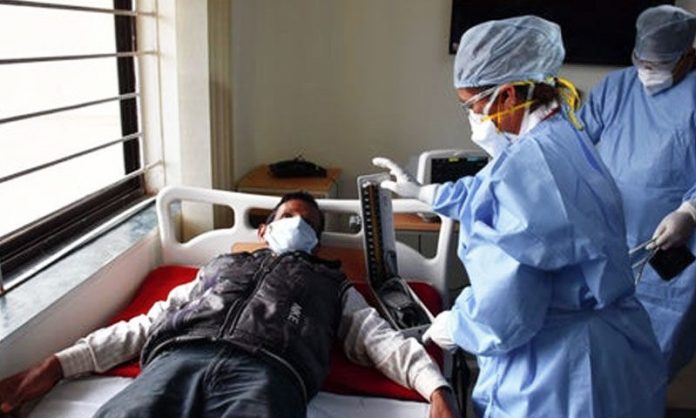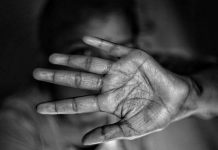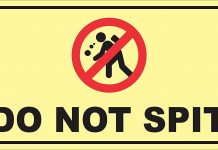This article is written by Meenal Sharma, a student of Vivekananda Institute of Professional Studies. The author discusses the exploitation of sanitation workers amongst the COVID-19 pandemic in India along with measures taken by the government and their implementation.
Table of Contents
Introduction
Amidst the global pandemic, Dev Dutt Sharma, a sanitation worker in South Delhi who usually worked to prevent malaria in the city has now been imparted with the risky job to sanitise the crowded slums and streets. He disinfects up to 18 homes a day in the containment zones. For him the risk of infection is omnipresent. In a recent interview, he expressed that he has no choice and is obliged to perform his duty even though there is a prolonging threat that he might become a carrier and infect his family including his children as he is very exposed to the virus. However, he also fears what might happen if he stays home and doesn’t do his job. He ensures his own safety by wearing the protective gear. According to him by doing his job he is protecting more than one family and therefore, in some way saving his own family as well.
The plight of such sanitation workers is a subject of growing concern. At this moment, their task is a very essential one and at the same time the most dangerous one. The major question is, whether the government has laid down proper guidelines for ensuring the safety of such workers and whether these measures are being enforced strictly.
The ease of exploitation
The labyrinth of social and economical inequalities has never spared workers such as sanitation workers, ragpickers, janitors, etc. Moreover, the spread of coronavirus has widened the gap between the privileged and the unprivileged. In these difficult times, these workers have no other option but to risk their lives by going to work amongst the possibly infected waste tossed out by people. This pandemic has made us all realise that the jobs which are least appreciated are the most essential. In spite of all the difficulties that are faced by these essential workers, they carry on with their work without any want for appreciation.
The government has taken various measures for ensuring the safety of the doctors and nurses who are the frontline warriors. The sanitation workers are in no way less than the medical staff in preventing the stop of the virus. In keeping the cities clean, they are proving to be of paramount importance by maintaining hygiene. However, what is of concern is whether they have been trained well to deal with the situation. The society, as well as the government, has always taken them for granted as their voices have remained suppressed or unheard. The doctors and nurses are doing a commendable job in combating the virus. They are being regularly briefed and trained to deal with the virus and how to maintain proper hygiene. Similarly, there is a need to brief sanitation workers to protect themselves while carrying out their duty.

WHO Guidelines
The World Health Organization recommends following the existing guidelines on the safe management of sanitation services which also applies to the COVID-19 outbreak. Moreover, the WHO published interim guidelines on 23 April 2020 and 19 March 2020 with reference to water, sanitation, hygiene, and waste management amongst the COVID-19 virus. According to these guidelines, the virus can be reduced by maintaining good hygiene and sanitation services.
There is no evidence that the virus has been transmitted via sewage or water drainage systems. Certain guidelines have been issued with respect to the water, sanitation, and hygiene (WASH) workers. They are summarised as follows:
- Hand hygiene: The most important measure which is to be taken is to wash hands frequently and correctly. All the WASH workers should maintain good hand hygiene by using alcohol-based hand rub or soap and water. They should avoid touching their face with unwashed hands.
- Personal Protective Equipment (PPE): Workers should have access to appropriate PPE such as protective outerwear, heavy-duty gloves, boots, goggles or a face shield, and a mask.
- Proper training: Sanitation workers should be given proper training to use PPE. In cases of increased risk, a specific combination of PPE should be provided. They should be trained as to how to put on and remove PPE without breaching the protective barriers.
- Social Distancing: Apart from practising good hand hygiene, the workers should maintain social distancing of at least 1 meter from confirmed or even suspected cases.
- Health-care settings: Certain points were laid down to prevent the WASH workers from the risk of infection while caring for coronavirus patients. They are:
- Frequently washing hands.
- Regularly cleaning and disinfecting the environment.
- Safely managing the faeces and urine of the COVID-19 patient and treating them as a biohazard.
- Segregating and safely disposing of the medical waste of the COVID-19 patients. It is recommended to treat the waste on-site and then safely dispose of it.
Measures by Central and State Government
Centre
According to a recent directive of the Ministry of Health and Family Welfare, Guidelines on the rational use of Personal Protective Equipment. It has classified the average sanitary staff to be at moderate risk, while those who directly come in contact with the patients to be at high risk. In this directive, it is said that the sanitation workers should be provided with PPE of N-95 masks and gloves.
This guideline provides the following directions while using PPE:
- Use of Personal Protective Equipment should not be an alternative to measures such as hand hygiene and respiratory etiquettes.
- The social distancing of at least 1 meter shall be maintained from contacts/suspect/confirmed cases.
- The necessary protocol for disposing of PPE shall be followed.
The National Safai Karamcharis Finance and Development Corporation (NSFDC) is an undertaking under the Ministry of Social Justice and Empowerment which is wholly owned by the Government of India. It is a corporation working for the socio-economic upliftment of sanitation workers and their families all over India. NSFDC issued an advisory to municipalities and panchayats to ensure that Personal Protective Equipment is provided to sanitation workers to ensure their safety from coronavirus. This advisory directs that the sanitation workers shall be provided and oriented with the use of PPE and how to maintain social distancing during work.
On 20th April 2020, the Centre issued an advisory to all the State governments to ensure the safety of sanitation workers. The following were advised by the Centre to the States:
- To provide orientation to the sanitation workers and provide them with a special ID/pass or permission letter by the Urban Local Body to carry out their work during the lockdown.
- To provide the sanitation workers with PPE, sanitizers and disinfectants for their safety.
- To direct sanitation workers to change into work clothes at a designated changing area and to be in the recommended protective gear. They should not touch the garbage with bare hands and wash hands after they remove their gloves.
- Sanitation workers are advised to maintain social distancing of 1 meter from the general public and preferably work in small groups.
- After finishing their work, they should wash their tools, PPE, and work clothes and take a shower in the changing area.
States
Delhi
Recently, a petition was filed before the Supreme Court by Harnam Singh, a social activist who said that sanitation workers do not have adequate protective gears for carrying out their work. According to the plea, making the sanitation workers clean household areas which have the risk of potential infection of coronavirus without any PPE is a violation of their fundamental right to life. It further said that while doctors work in a more sanitized and controlled environment, the sanitation workers are at a higher risk of getting an infection as they work in unhygienic conditions. The plea sought directions to conduct testing of sanitation workers as well as their family members. The Apex Court disposed of the plea after taking into account the arguments of the Centre that the adequate protective kits were provided to sanitation workers and the guidelines laid down by the WHO on COVID-19 pandemic have been complied with. The Apex Court said that the petitioner could proceed to the High Courts if he has any specific case.
The petitioner approached the Delhi High Court regarding the same. The Delhi High Court in dealing with this petition and many others seeking PPE and other necessary equipment for sanitation workers sought to know from the Delhi government, north, south, and east municipal corporations as to what steps are being taken for the safety of sanitation workers. The said petition also deals with the issue of dumping bio-medical waste in an open dumping ground, which could be a breeding ground for infection. Anyone passing the area could be exposed to the virus, especially the sanitation workers.
Another petition was filed by the All Municipal Corporation Staff Union before the Delhi High Court. It said that proper protective gear should be provided to sanitation workers and rag pickers who are at risk of infection. It further said that sanitation cubicles shall be put in each ward so that workers can sanitize themselves before going home. According to this petition, more than 80% of the sanitation workers do not have protective gear. It also claimed that one sanitation worker died in April due to coronavirus.
Other States
In Maharashtra, the State with the highest number of COVID-19 cases, the sanitation workers are not provided with PPE from the authorities. Whereas in Bihar, Haryana, and Madhya Pradesh, it was reported that the sanitation workers lacked protective gear, however, they continued to work. In Telangana, a self-help group of urban women are working to stitch face masks for the sanitation workers but these masks are not up to the guidelines laid down by the Ministry of Health and Family Welfare. Even from states like Andhra Pradesh, Orissa, and Gujarat it has been reported that sanitation workers deal with the waste in absence of any protective gear.
Government response covering insurance against death due to COVID-19
On March 26 2020, the Finance Minister, Nirmala Sitharaman announced insurance of ₹50 lakhs per person to sanitation workers in government hospitals, the Asha workers, paramedics, nurses and doctors who are exposing themselves to the virus. This scheme would provide the insurance cover to 22 lakh health workers in all government health centres, wellness centres as well as hospitals of Centre and State government. The insurance cover is said to include the expenses of their hospitalisation and medication costs related to COVID-19.
This was followed by an announcement by the Chief Minister of Delhi, Arvind Kejriwal who said that an insurance cover of ₹1 crore shall be provided to healthcare workers as well as sanitation workers who lose their lives due to coronavirus while serving the patients. The amount would be given to the families of those who lose their lives due to coronavirus while carrying out their duty. The Delhi government has announced his insurance cover for frontline workers in government as well as private sector.
The Punjab Government also announced an insurance cover of ₹50 lakhs each for police officers as well as sanitation workers who are the most exposed to the virus, on the lines of the insurance cover which was provided for healthcare workers. Various other states like Uttar Pradesh and Maharashtra announced an insurance cover for frontline warriors including the sanitation workers.
However, the question that remains unanswered is whether such frontline sanitation workers who get infected with the virus are being provided with quality medical treatment. Whether the government is doing enough to provide proper assistance to such infected sanitation workers as they belong to the economically weaker section and cannot afford expensive medical care.
What is the need of an hour?
Recently, the Ministry of AYUSH has provided an ‘Ayuraksha kit’ to Delhi Police to help them boost their immunity. Our Prime Minister, Narendra Modi, in his recent speech, appealed to the public to drink the kadha by the Ministry of AYUSH to boost their immunity in the fight against coronavirus. During the global pandemic, frontline warriors such as doctors, nurses, healthcare staff, sanitation workers, and police personnel are at the highest risk of contracting the virus. In light of the same, the Ministry of AYUSH has put together an immunity-boosting kit to reduce the chances of infection of the police officers as they are more exposed to the virus. This kit contains a kadha concoction, sashmani tablets, oils to be used as nasal drops and chyawanprash. This is a praiseworthy step which has been taken by the Ministry of AYUSH.
Such measures should also be taken with respect to sanitation workers as they work in an unhygienic environment. They are most prone to infection amongst all the frontline warriors. In the fight against coronavirus, the need of the hour is prevention rather than compensation. The government has laid down guidelines and insurance schemes, but it is more important to ensure strong prevention methods. The government should ensure PPE to the sanitation workers and provide them with proper training as to its use and disposal. It is necessary to ensure such measures, otherwise, there will come a day when it would be very hard to find people for sanitation jobs as most of them would have yielded to the coronavirus.
Conclusion
After the work of healthcare officials, the job of a sanitation worker is the most essential and yet the most difficult. Although, unlike doctors and nurses the work done by a sanitation worker is very often overlooked. They don’t get due credit or acknowledgement of the work done by them. Therefore, it is important that society appreciates and acknowledges the work done by them. Their salaries should be paid on time, healthy food and water should be provided to them. For carrying out their work they should be provided with PPE and other important protective gear. In case they contract the virus, then they should be given medical treatment for free. Various measures have been announced by the government, but what is to be seen is how these measures will be implemented and to what extent.
References
LawSikho has created a telegram group for exchanging legal knowledge, referrals and various opportunities. You can click on this link and join:
 Serato DJ Crack 2025Serato DJ PRO Crack
Serato DJ Crack 2025Serato DJ PRO Crack










 Allow notifications
Allow notifications


